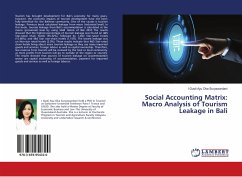In the light of the above, it is easy to state that tourism became one of key vectors of globalization. In this line, tourism is one of the most obvious forms of globalization, though, at the same time, the most difficult to assess. There are few phenomena to prove more clearly the spatial-temporal compression of the societies than the decreasing prices and the increasing easiness of the international travels for entertainment purposes and, hence, the ever greater number of people, coming from almost all the social layers that find it easier to detach themselves of their routine environments and experiences.First of all, the tourism must be viewed both from an economic and a cultural perspective. Even with the relatively widespread number of independent travels, all the tourists need to use the services of numerous companies, either big or small, domestic or international, that organised and synchronize the travels and the tourism. Secondly, the economic criteria define patterns:who is likely to travel, where tourists go, how often they travel and what they do upon arrival.
Bitte wählen Sie Ihr Anliegen aus.
Rechnungen
Retourenschein anfordern
Bestellstatus
Storno








